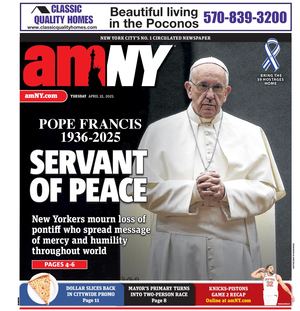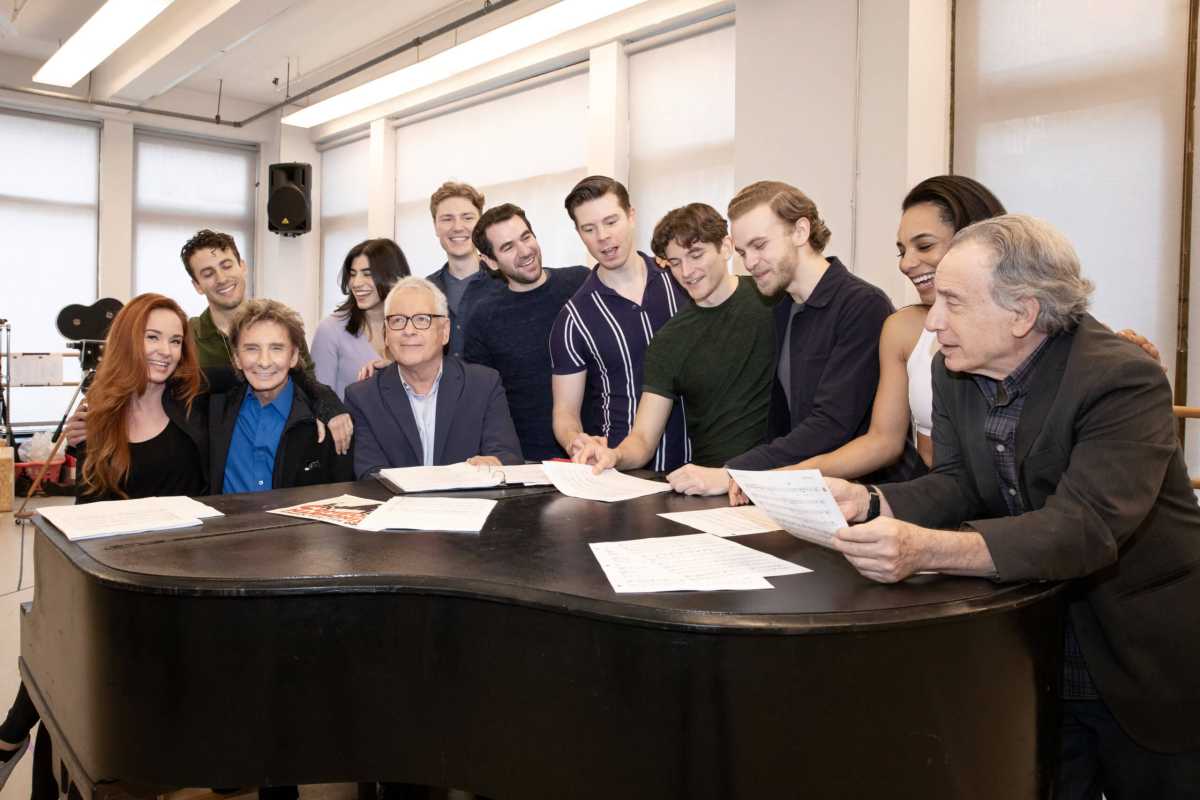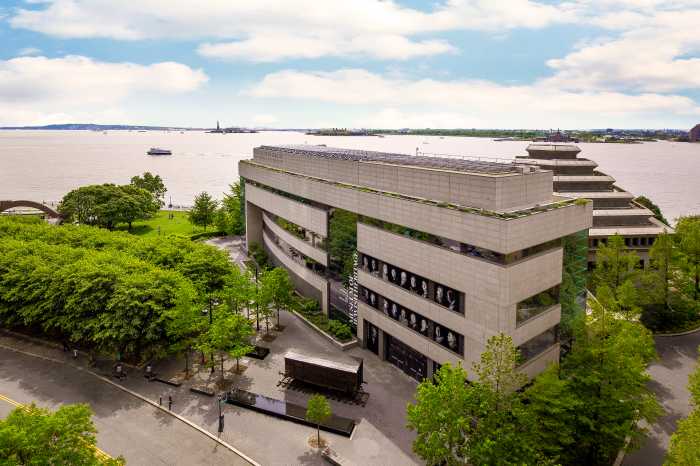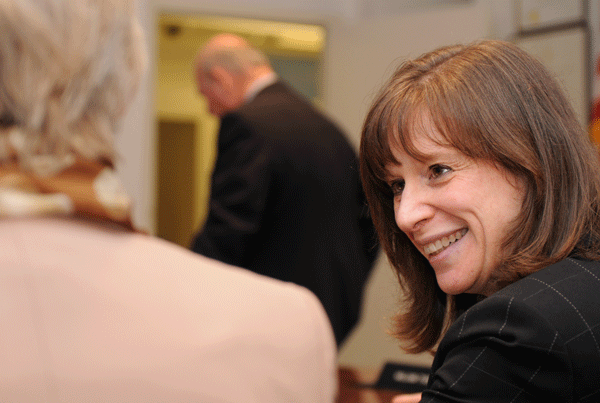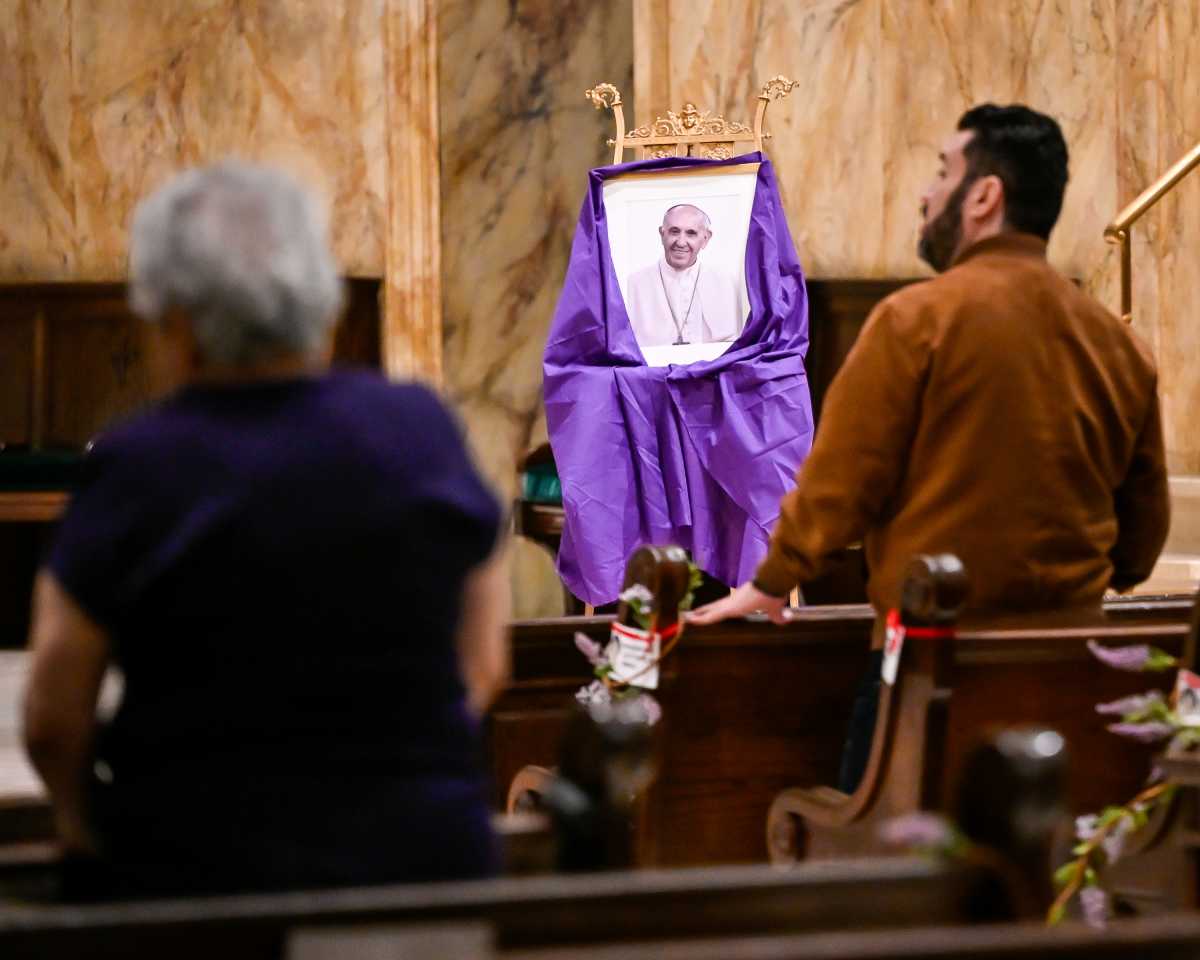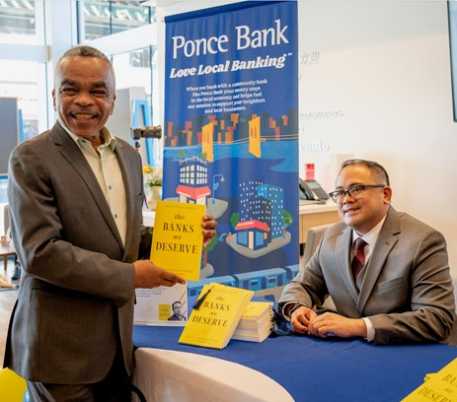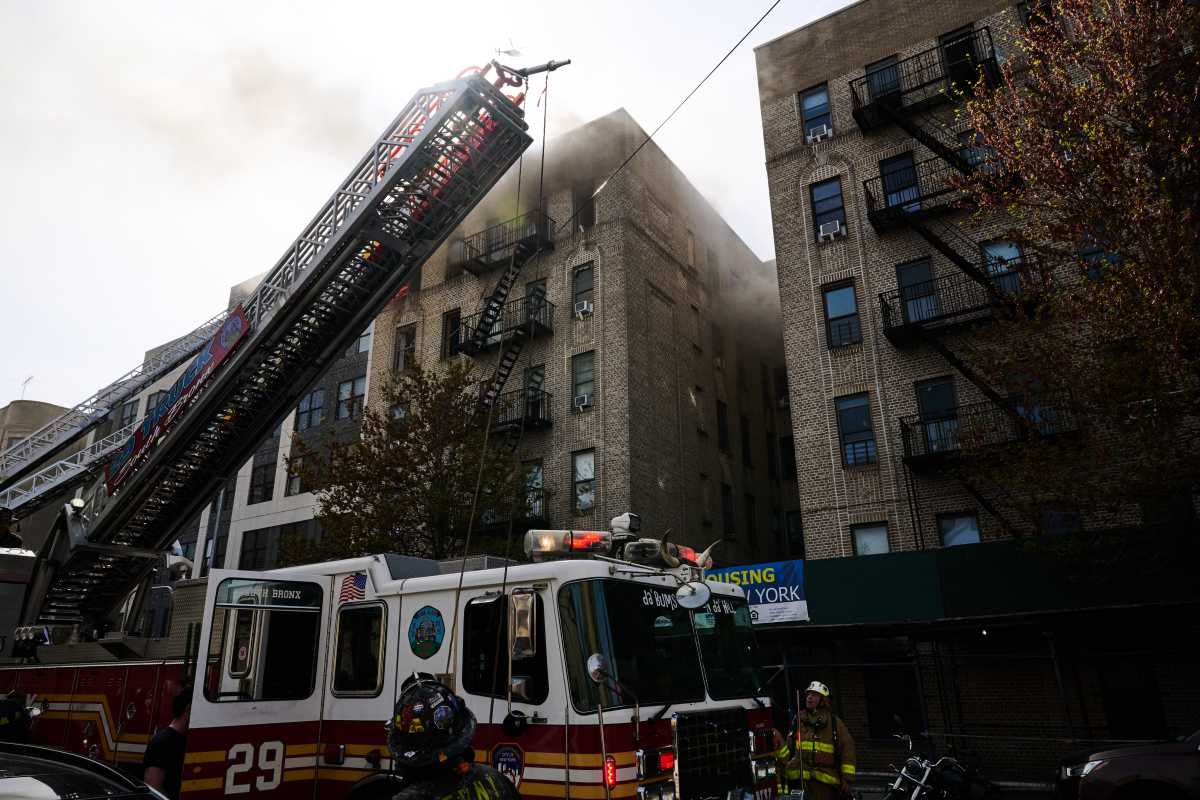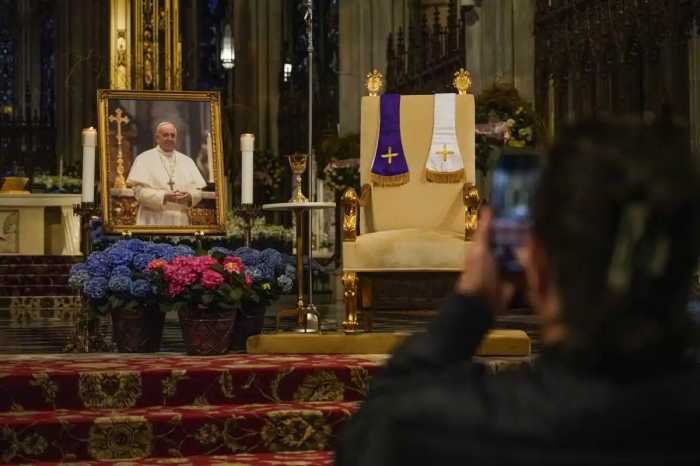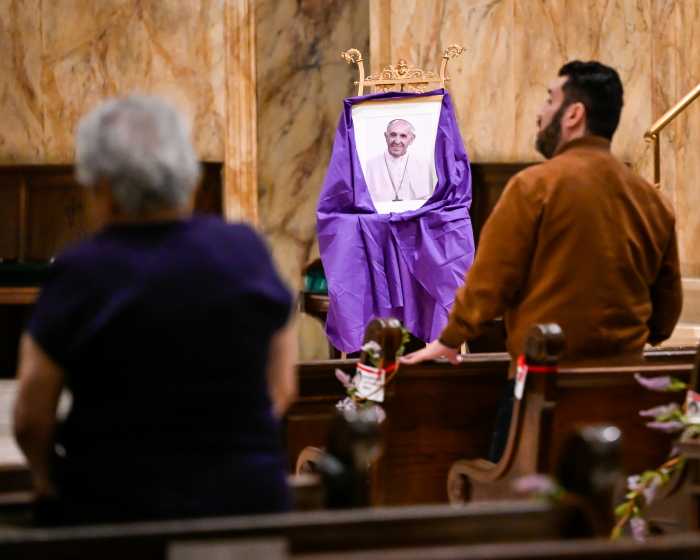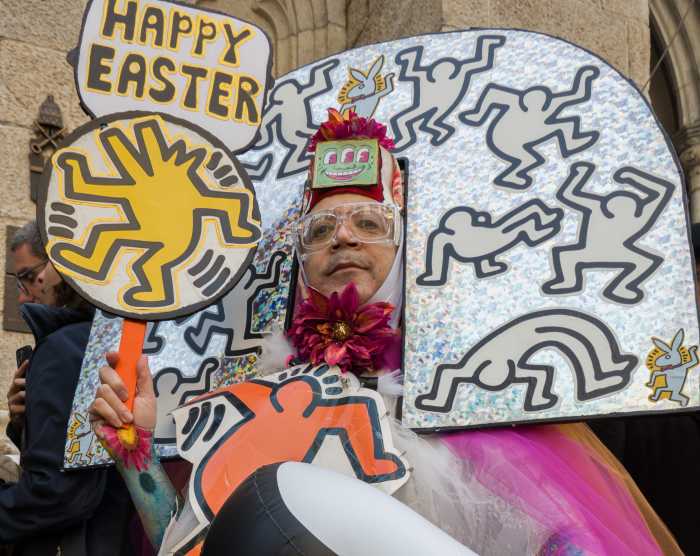After a quarter century of development and countless delays, Barry Manilow and Bruce Sussman’s original musical “Harmony” is finally receiving its New York debut in an Off-Broadway production produced by the National Yiddish Theatre Folksbiene at the Museum of Jewish Heritage in Battery Park City.
“Harmony” dramatizes the real-life story of the Comedian Harmonists, a vocal group in Weimar Germany consisting of six Jewish and gentile young men, whose success was shattered by the Nazi rise to power.
We spoke with Manilow (music) and Sussman (lyrics and book) about the show during a break in rehearsals.
Q: Why is this story worth telling right now, and why as a musical?
Manilow: I think it’s a good story about six incredibly talented, innovative, creative musicians who created a sound and an act that no one had ever done before, and who nobody’s ever heard of. However, these days, this seems to have hit us smack in the face. It is as contemporary as ever, sadly.
Sussman: When we were invited by the National Yiddish Theatre to do the show in this building, every stone of which is dedicated to remembering, we knew that this was the perfect place to do it. But now people are telling us that not only is this the perfect place, we seem to have hit upon the perfect time, and I’m not happy to say that.
The fact that the show is resonating the way it is makes me nervous. I fear that people think we’ve written to the headlines and it’s the other way around. Those lines were written three, five, or seven years ago and it is just resonating more and more today. But the story always sang to us.
It occurred to us that this was the musical we always wanted to write, and it had a thematic line in place, which was this is a show about the quest for harmony, in what turned out to be one of the most discordant chapters in human history, and that to us was most definitely a musical.
Q: I remember writing about “Harmony” back in 2003. How did you get through all the show’s numerous stops and starts?
Manilow: It just wouldn’t leave us alone. It wouldn’t go away. We have believed in this story and what we’ve done so deeply. And even though it hurt every time the show didn’t make it, it kept coming back to us. We wouldn’t have done it again if the Yiddish Theatre hadn’t offered us the place.How could we ever say no to that? So we dived in again.
Sussman: There were periods when it did hurt too much and we put it in a drawer. But then a producer would approach us. This happened three, four, five times. People would approach us and say “the show needs to be done. The story needs to be told and I’d like to do it.” And so we said “okay.” We opened the drawer and went ahead with it again.
Q: Do you expect the show to transfer to Broadway?
Manilow: We’ve got ambitions for Broadway, and it’d be very nice to wind up uptown the way it’s supposed to. But right now, we’re very happy where we are, creating our show and making it the best “Harmony” we can. I’m not thinking about the future. We are totally invested in this version of “Harmony.”
Sussman: We’re deep in the weeds right now. We’re in rehearsal during the day, putting in fixes and cuts, and watching the performances. We’ve got blinders on right now. We need to get the job done.
Q: How do the songs in “Harmony” compare with your pop songs?
Manilow: Everything in this show is filled with melody. I’m a melody guy. And in the pop world, melody seems to have taken a nosedive. They don’t write melodies anymore. That’s the only thing I can say I took from the pop world to the Broadway world. But the fact is I started off wanting to be in the Broadway world, and I took the stuff I learned from Broadway and put it into the pop songs.
Q: Are there any musicals that “Harmony” takes inspiration from?
Sussman: The concept of our show is that the first act is written in the style of a golden age musical that would have been written about this group had the events of the second act not occurred. So in the first act, we are drawing from those golden age shows. In the second act, that process deconstructs, and ultimately we wind up with just one man talking with no musical accompaniment at all.
Q: How has “Harmony” evolved over the years?
Manilow: You know, it was already great. Ask the people who saw it at La Jolla Playhouse (in 1997). They said “don’t touch it. It’s the greatest thing.” It’s always been a solid musical. Yes, we’ve made changes. God knows we’ve made so many changes that if you saw it at La Jolla, you might not even recognize it today. But it’s still “Harmony,” and it’s still what I consider to be a solid musical.
Sussman: During the pandemic, Barry and I and (our director) Warren (Carlyle) met every Tuesday and Friday on Zoom and we said “we have another year or year and a half. Why don’t we just shake it up and see if there’s another version of this show we like better than the one we have. And if we don’t, nothing lost. We just go back to what we have.” Well, we tried. We made a bold change, and we liked it, and that is the version that we’re putting up, and it is very different from what preceded it.
Q: What qualities do you look for in the actors who play the Comedian Harmonists?
Sussman: Authenticity. This is a very difficult show to cast, particularly the six guys. They have to be triple threats. But the six we have now, I think Barry will agree it’s the most authentic Comedian Harmonist sound we’ve ever had. And it’s thrilling to us to see them do this.
Manilow: They’re so young and talented. They sound like the Backstreet Boys. And the Comedian Harmonists were the Backstreet Boys of their day. It’s six-part harmonies for each of these songs. Do you know how difficult it was for them to learn this?
Q: A lot of really exceptional actors have appeared in earlier productions of the show.
Sussman: We pretty much discovered Patrick Wilson. He came off a tour of “Carousel” ,and we cast him at La Jolla and his career just went through the roof after that. And Danny Burstein and the late, great, wonderful Rebecca Luker. Kate Baldwin. Brian d’Arcy James. Aaron Lazar. We’ve been blessed in our casts over the years.
Q: What do you hope people will take away from the show?
Sussman: That these six extraordinary people were there. And that in this very dark and troubled time, these six diverse human beings found harmony.
“Harmony” runs through May 8 at the Museum of Jewish Heritage, 36 Battery Place, nytf.org.
